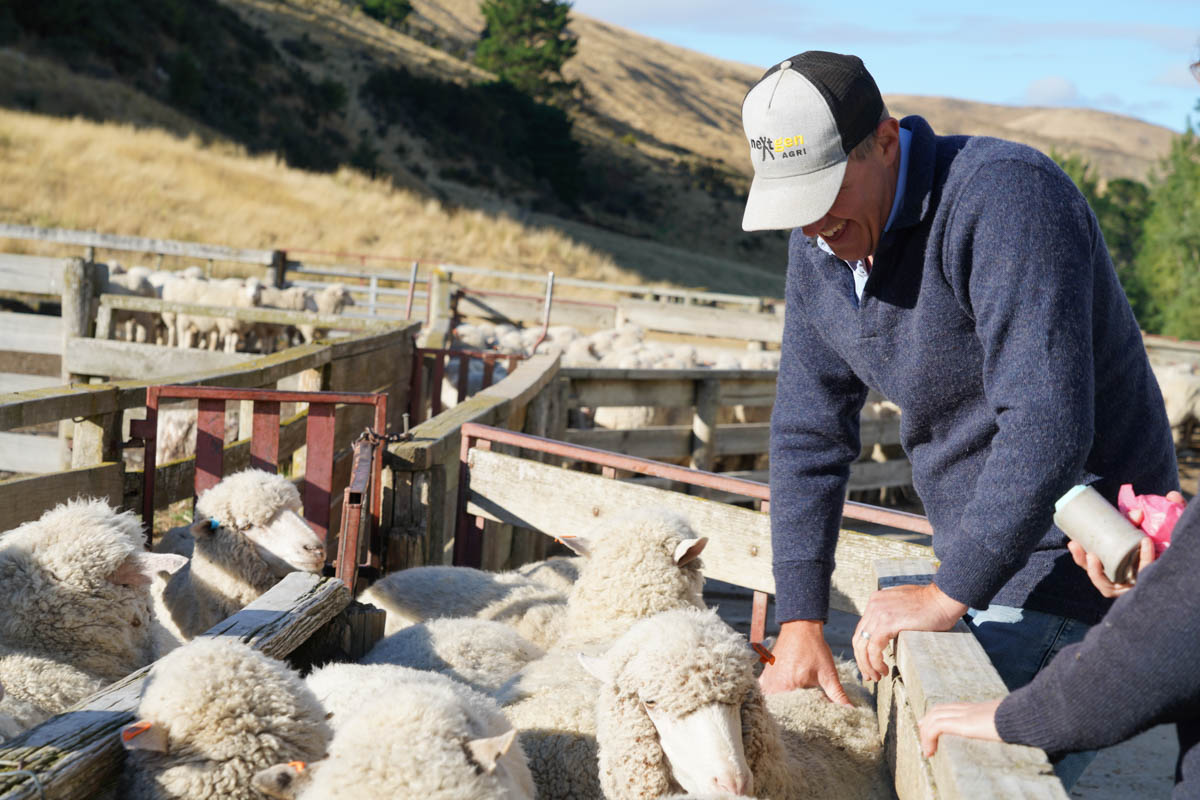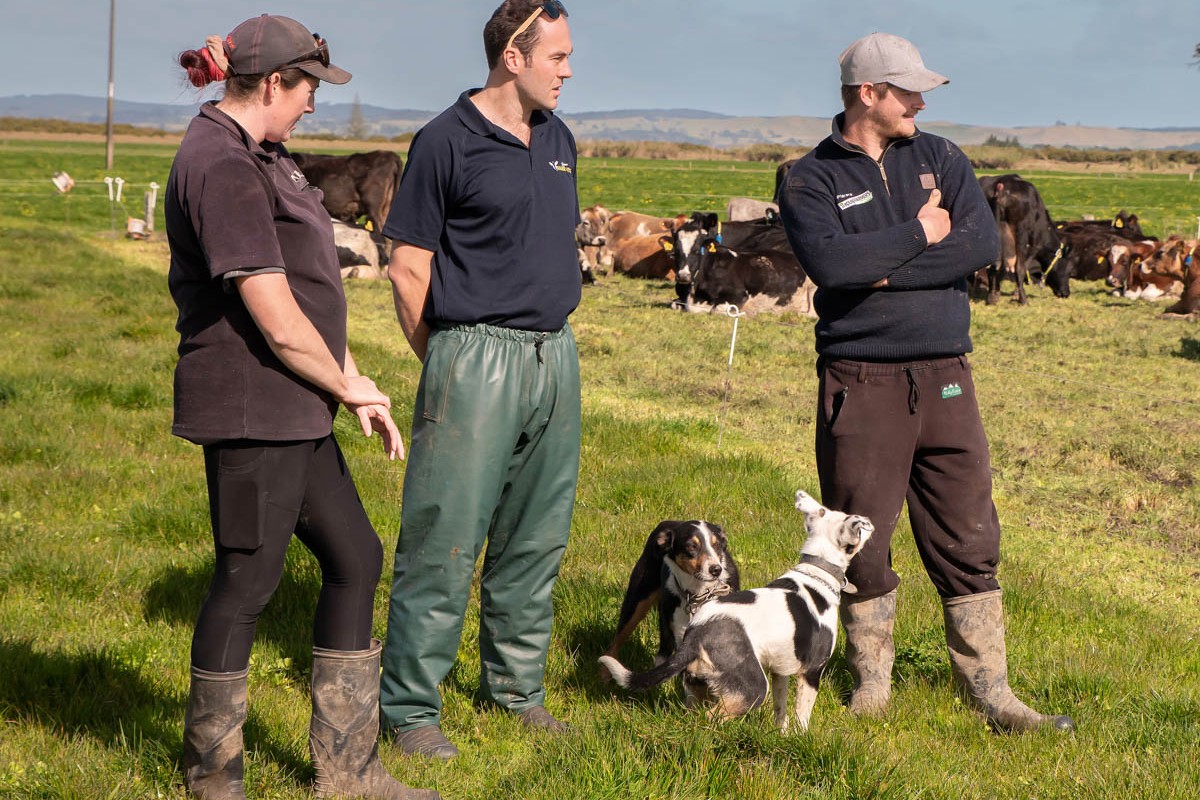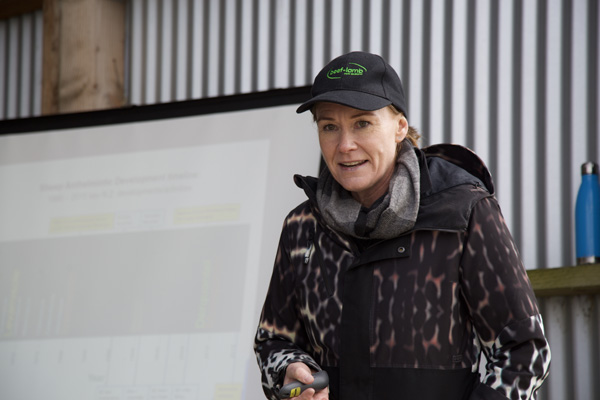Terry Brosnahan
The Red Meat Profit Partnership programme leaders say it is no gravy train nor is it a subsidy.
Programme steering group chairman Malcolm Bailey said the RMPP costs were well-scrutinised.
This was in response to a cartoon and an article in Country-Wide’s November issue. It questioned the effectiveness of the programme and the scrutiny of its costs.
On his last day at work, the departing RMPP chief executive Smith finally spoke to Country-Wide. Both he and Bailey denied the programme was a gravy train
Smith’s sudden departure has raised eyebrows as there was no public announcement at the time. Smith said he was leaving for personal reasons, New interim RMPP chief executive David Wright was only in the second week of the new job when approached by Country-Wide and referred comment to Bailey.
Bailey said Smith had left to pursue other opportunities and the board was happy with his performance as chief executive.
The RMPP is a partnership between the Ministry for Primary Industry, Beef + Lamb New Zealand, six meat processing companies and two banks. The total maximum funding for the programme is $64.3 million ($32.15m from government and $32.15m from industry co-investors).The RMPP partners’ contribution can be in-kind as well as cash. How much is in-kind unclear.
The programme contract was signed in November 2013 and is to run for seven years.
The RMPP is part of the Primary Growth Partnership programme and has spent more than $21m in three-and-a-half years. Critics say it is a gravy train and question whether or not the money is well-spent.
Incoming Agriculture Minister Damien O’Connor said there was a lack of transparency around PGPs.
He called the PGP programme “bullshit” and said a full review would be carried out.
Bailey said he was surprised by the minister’s comments as he had tried to tee up a meeting with him while he was in Opposition.
Bailey said the RMPP is well-scrutinised and is not worried by a review.
“We’ve got no desire to hide anything as it is public money.”
The RMPP is focussed on giving farmers greater transparency between the farmgate and the processor.
He sits as an independent chairman of the programme steering group which acts like a board of directors. Further scrutiny is carried out by MPI and the independent advisory panel for the Primary Growth Partnership programme.
Bailey was a staunch opponent of subsidies in his days as Federated Farmers president. The RMPP plans to pay $4000/farmer to join farm discussion groups.
He said it was not a subsidy in the sense it paid farmers directly to increase farm outputs. It was broader research and development funding which wouldn’t normally come from the private sector.
He also said the RMPP’s action network programme was setting up action groups, not discussion groups, even though Smith called them such.
“With a discussion group you may turn up and listen, but there is no obligation to put a plan in place.”
The programme aims to bring groups of seven to nine farm businesses together per group. Each farm business will be paid $4000 in year one to pay for experts’ time into whatever issue the group decide they want to cover. Farmers will have to put in $800 the second year.
It is not known how many farmers will take up the offer to join the groups, but farm consultants spoken to believed it would be small. They said time away from the farm, not money, is the limiting factor plus farmers are reluctant to share information.
Facilitators
An email from the RMPP office said the number of trained Action Network facilitators expected by the end of September next year is 150 and the number of farmers, 1500.
Farmers, facilitators, and “subject matter experts are required to register with RMPP.
It stated, invoices were to be sent directly to RMPP and subjected to a number of checks to validate the people were an expert in their subject matter. The invoice then goes to the group nominated by the primary contact farmer.
The group would confirm the work had been undertaken to a satisfactory level and approve the invoice for payment. Group members would be surveyed on a regular basis to see if they are happy with the service they are getting.
No guarantees
Bailey said there was no guarantee they would get 3000 farmers and the programme would work.
“If we were sure it would work we couldn’t justify the use of public money.”
A budget of $14m has been set aside for 3000 farmers to join by 2020 as well as money for administration. However, Bailey said the RMPP was expected to come in under budget by about $10m.
He mentioned several projects where the RMPP had burned dough.
It invested $120,000 in supporting a million dollar research project between Tru-Test and AgResearch in developing a rapid weighing system. Stock would run over the device in a gateway and give the average weight. The software let it down and the project was scrapped.
Another was looking at inefficiencies between farmgate and processors such as transport. Deloitte was used to analyse mainly NAIT data but after spending about $1m the project was stopped because a number of “heroic” assumptions needed to be made which wouldn’t give a meaningful picture.
For example, an animal born on a farm stays there until it goes to slaughter but farmers have breeding and finishing country.
Bailey said RMPP was focused on giving farmers more transparency so they knew the true costs and make the decisions which in turn gave greater efficiency.




